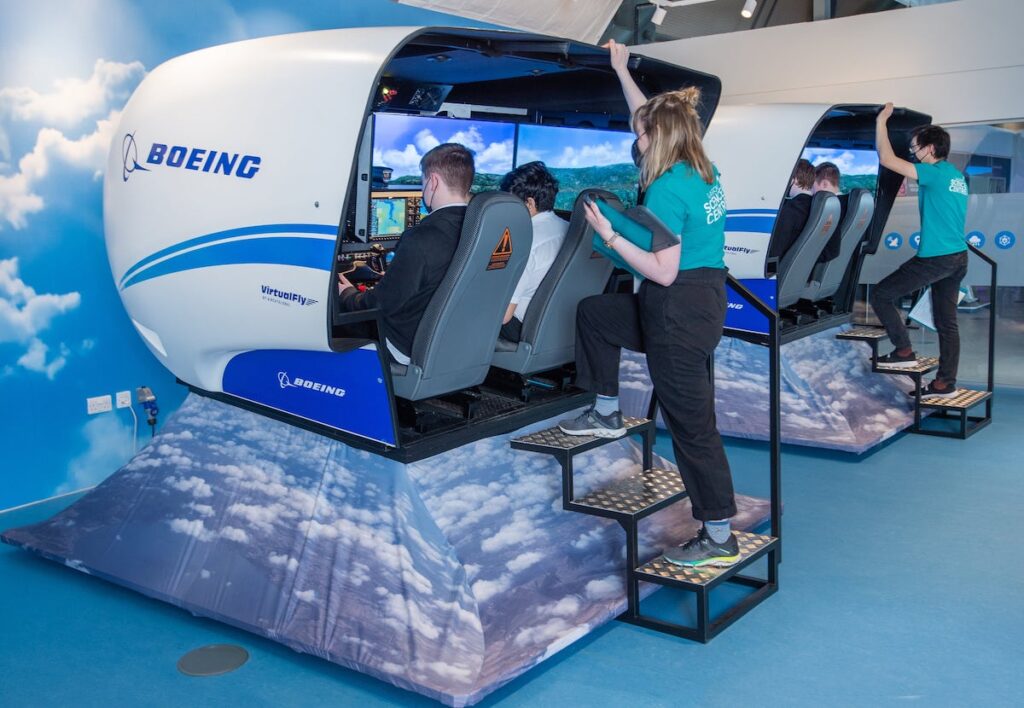Travelling for both business and leisure has become a crucial part of our everyday lives, yet we face challenges with the ways in which we do so and the impact that we have on the planet.
Science, innovation, design and engineering have never been more crucial to the future of our planet and, if we are to continue with the ways of life we have become accustomed to, the world needs more sustainable and circular processes and technologies to help us protect the planet and its resources.
It’s in no way a stretch to say that climate change and global warming are the biggest threats to humanity of our lifetime and the generations to come, and we still have a long way to go in designing what the future will look like. We have of course already started and have a net zero target of 2050 within the UK to work towards. However, within those plans, it is crucial that we bring the younger generations – the workforce of the future – on board now and encourage them to think about the pathways to sustainability.
Over recent years the language around the net zero targets has changed. What was previously a target to ‘reach’ by 2050, is now a ‘race’ and, to be within touching distance of that finish line, it is essential that our energy and efforts are funnelled into ensuring young people of today are not only developing the skills and knowledge to drive the ideas and technologies that will shape the future of a more sustainable world, but are also passionately engaged in the STEM subjects which are the gatekeepers to such innovation.
Glasgow Science Centre has been at the heart of science education in Scotland since it opened 21 years ago. When we opened our doors back in 2001, we set out on a mission to make science and technology more accessible to Scots, to ignite understanding and passion for the subjects in which Scotland already leads the way.
In March this year, we added a new legacy to our name by launching the UK’s first Newton Flight Academy. The facility is a permanent classroom used to teach students about aviation-related STEM concepts; inspiring engineers and scientists of tomorrow to develop the ideas and technologies that will shape the future of more sustainable aircraft and aviation.
The Academy hosts three full-motion flight simulators with the capability to virtually take off, fly and land in airports all over the world. Originally developed in Norway, the Newton Concept aims to provide high-quality and unique learning experiences for young people all over the world. With nearly 50 Newton Rooms operating today, students are gaining the 21st-century skills they need through curriculum-based practical learning. The new development at Glasgow Science Centre is one of only two Newton Flight Academies worldwide with the others based in Norway.
Covering themes including space, biofuels, advanced materials and manufacturing, the Newton Flight Academy provides immersive and experiential learning programmes that enable S2 and S3 pupils across Scotland to engage in real-world challenges while working alongside industry professionals.
It’s exciting and it’s fun. It’s maths and science made applicable and accessible, broken down into chunks of information with a practical application which brings the mathematical and scientific concepts to life which will spark the imagination and interest of young people.
The simulators allow pupils to control the aircraft using information learnt within the Academy’s classroom. It plays into, and harnesses, the natural interest and skills young people inherently have these days, while underlining and proving the transferability of skills like computer gaming.
Through the Academy, we are able to capitalise on the keenness of younger generations in topics such as coding, gaming, music and graphic design, using these sectors to open their eyes to how far and wide science and STEM reaches into the things which make up everyday life, such as the planes they see flying overhead.
It is this lateral thinking and openness to new ideas that will help us at least complete the first lap towards our goal of a carbon neutral planet. It’s breaking away from rote learning and textbooks which can often cause young people to disengage with STEM creativity and imagination. Instead, we can power the minds of the next generation of scientists and engineers with the infinite possibilities which are, or could be, within reach.
This is not simply a day out or a pop up exhibition – the Academy is now a core part of Glasgow Science Centre’s make up. Schools and community groups across Scotland are free to use the space to aid learning and offer an alternative mode of education, with the permanency of the facility ensuring there is room for sustained and meaningful participation for educators and their pupils.
We are all sprinting towards the net zero target and this has of course been felt by most sectors, but for aerospace in particular, pressure has mounted around flight emissions. It used to be that sustainability was a niche focus area but now, it is an industry shared problem which requires careful consideration and collaboration, not just by the sector itself, but across the board.
So maybe this race should be a relay rather than a sprint. By working together and continuing to create avenues for young people into STEM through installations such as the Newton Flight Academy, we have the opportunity to mould young minds, spark imagination and encourage interest in science, in innovation and in creativity. This may just help us successfully overcome the hurdles on our journey to addressing climate change.
